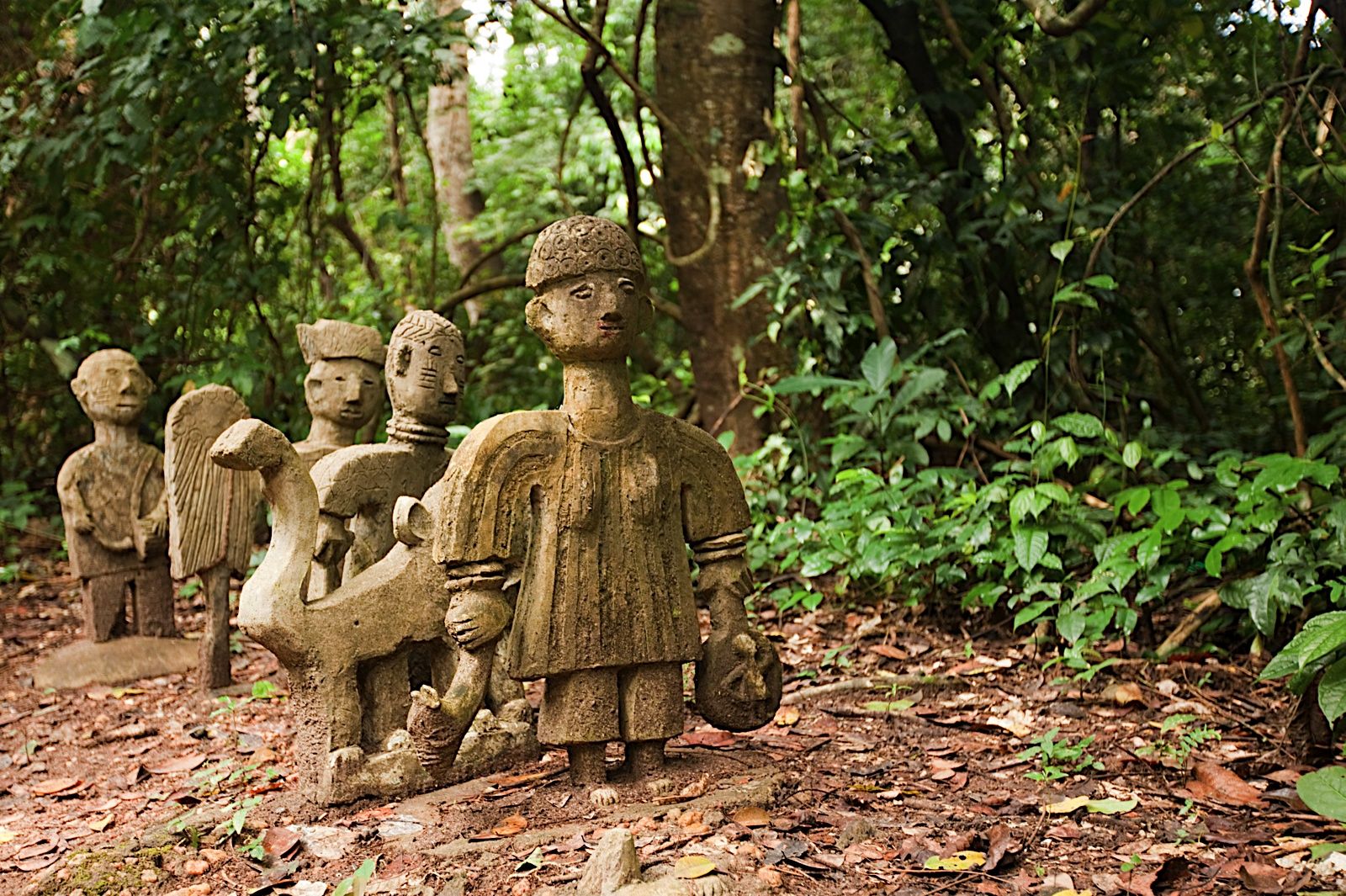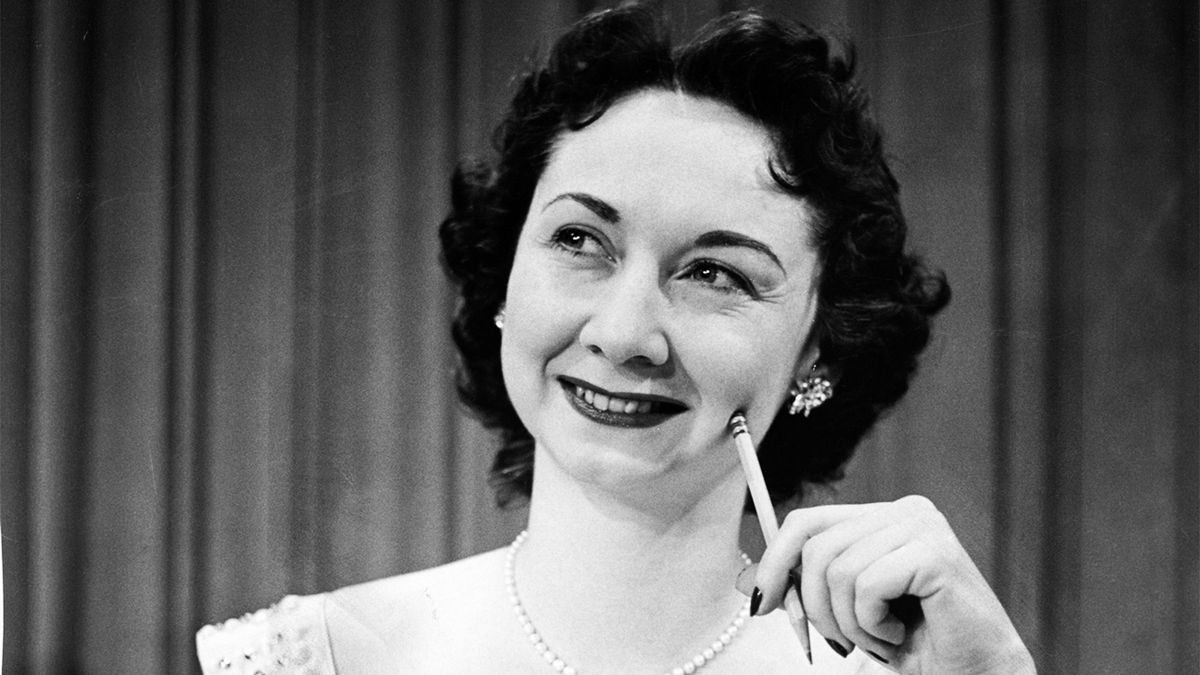
Welcome to the vibrant city of Oshogbo, located in southwestern Nigeria. Steeped in rich cultural heritage and surrounded by natural beauty, Oshogbo is a city that captivates the senses and leaves an indelible mark on every visitor. From its historical landmarks to its colorful festivals, Oshogbo offers a myriad of experiences that showcase the city’s unique charm.
In this article, we will uncover 49 fascinating facts about Oshogbo, delving into its history, culture, cuisine, and much more. Whether you are a curious traveler or a local looking to discover more about your hometown, these facts will give you a deeper understanding of what makes Oshogbo truly special.
So, get ready to embark on a journey through the enchanting streets of Oshogbo and uncover the hidden gems that await you in this culturally diverse city.
Key Takeaways:
- Oshogbo is a vibrant city deeply rooted in Yoruba tradition, boasting a rich artistic heritage, cultural festivals, and a strong sense of community, making it a must-visit destination for cultural enthusiasts.
- From the Osun-Osogbo Sacred Grove to the thriving art scene, Oshogbo offers a unique blend of history, tradition, and natural beauty, creating a welcoming and unforgettable experience for visitors.
A City of Yoruba Tradition
Oshogbo is a city deeply rooted in Yoruba tradition and culture. It is considered one of the important centers of Yoruba civilization.
Home to the Osun-Osogbo Sacred Grove
The Osun-Osogbo Sacred Grove, a UNESCO World Heritage Site, is located in Oshogbo. It is a sacred forest and a major attraction for tourists and devotees alike.
Known for Its Artistic Heritage
Oshogbo is renowned for its thriving artistic heritage. It is the birthplace of the famous Osogbo Art Movement, which began in the 1960s and boasts a unique blend of traditional and modern art forms.
Celebrates the Osun Festival
The Osun Festival, held annually in Oshogbo, is a colorful celebration that attracts people from all over the world. It is dedicated to the Osun River goddess and is a major cultural event in the city.
Rich in Traditional Crafts
Oshogbo is known for its skilled artisans who create beautiful traditional crafts such as wood carvings, brass works, and Adire textile designs.
The Birthplace of Susanne Wenger
Susanne Wenger, an Austrian artist and devotee of Yoruba culture, settled in Oshogbo and played a vital role in preserving the city’s artistic heritage. She was instrumental in the restoration of the Osun-Osogbo Sacred Grove.
The Site of the Oba’s Palace
Oshogbo is home to the Ataoja of Oshogbo, the traditional ruler of the city. The Oba’s Palace is an architectural marvel and a symbol of the city’s rich cultural heritage.
Connection to the University of Ife
Oshogbo has a close connection to the University of Ife (now known as Obafemi Awolowo University), which played a significant role in the development of the Osogbo Art Movement.
It Has a Vibrant Market Scene
Oshogbo’s markets are bustling hubs of activity, where locals and visitors can buy a wide range of goods, including fresh produce, textiles, and traditional crafts.
The Center for Traditional Medicine
Oshogbo is known for its traditional medicine practices. The city is home to several traditional medicine practitioners who provide healing remedies to the community.
The Origin of the Aje Festival
The Aje Festival, which celebrates the goddess of wealth and commerce, originated in Oshogbo and is marked by vibrant processions and traditional performances.
The Sacred Osun River
The Osun River, which flows through Oshogbo, is considered a sacred river and is believed to have healing properties. Many people visit the river for spiritual cleansing and purification.
Home to the Nike Art Gallery
The Nike Art Gallery, located in Oshogbo, showcases a vast collection of contemporary African art. It is a must-visit destination for art enthusiasts.
It Has a Thriving Music Scene
Oshogbo has a vibrant music scene that embraces various musical genres, including traditional Yoruba music, fuji, juju, and contemporary Nigerian pop music.
The Land of Twin Births
Oshogbo is known for having a high rate of twin births compared to other parts of Nigeria. Twins are considered special and are celebrated in the community.
The Home of Adire Fabric
Oshogbo is renowned for its production of Adire fabric, a traditional Yoruba textile made using resist-dyeing techniques. Adire textiles are highly prized for their intricate designs and vibrant colors.
Historical Landmarks
Oshogbo is dotted with historical landmarks that tell the story of its rich past, including the Oshogbo City Walls, the Oke-Maria Catholic Cathedral, and the National Museum of Oshogbo.
The Indigenous Languages
The indigenous languages spoken in Oshogbo are Yoruba and a variation known as “Ijesha.” These languages are an integral part of the city’s cultural identity.
The Center for Traditional Festivals
Oshogbo is the hub for traditional festivals in Osun State. The city hosts numerous festivals throughout the year, showcasing the rich cultural heritage of the Yoruba people.
Home to the Nigerian Railway Corporation
The Nigerian Railway Corporation has a division in Oshogbo, providing an important transportation link for both goods and passengers.
The Role of Traditional Rulers
Traditional rulers, known as Obas, play a significant role in the governance and administration of Oshogbo. They act as custodians of cultural heritage and are highly respected in the community.
The Annual Egungun Festival
The Egungun Festival is a vibrant cultural event in Oshogbo, where masquerades dressed in elaborate costumes engage in traditional performances and pay homage to ancestral spirits.
Religiously Diverse
Oshogbo is home to people of various religious beliefs, including Christianity, Islam, and traditional Yoruba religion. Religious tolerance is highly valued in the city.
The Nurturing Ground for Artists
Oshogbo has long been a nurturing ground for artists, attracting both local and international talent. The city’s artistic atmosphere fosters creativity and artistic expression.
The Importance of Ile-Ife
Ile-Ife, the ancestral city of the Yoruba people and the spiritual home of the Yoruba kingdom, holds great significance for the people of Oshogbo.
Traditional Yoruba Cuisine
Oshogbo offers a variety of traditional Yoruba dishes, such as pounded yam, amala, ewedu soup, and efo riro. Food lovers can enjoy a taste of authentic Yoruba cuisine in the city.
The Oshogbo Arts and Crafts Village
The Oshogbo Arts and Crafts Village is a hub for artisans and craftsmen to showcase their skills and sell their handcrafted creations, including pottery, sculptures, and jewelry.
The Home of Nigerian National Troupe
The Nigerian National Troupe, a renowned performing arts company, has its base in Oshogbo. It promotes Nigerian culture and tradition through music, dance, and theater.
The Sacred Adunni Grove
The Adunni Grove is another sacred grove in Oshogbo, known for its spiritual significance and serene beauty. It is a place of worship and meditation for devotees.
The Economic Hub
Oshogbo serves as an economic hub in Osun State, with various industries and businesses contributing to its growth. It is a center for trade and commerce.
The Connection to the African Heritage Foundation
Oshogbo has strong ties to the African Heritage Foundation, an organization dedicated to preserving and promoting African culture and heritage. It has collaborated on various cultural projects in the city.
The Historical Iron Smelting Site
Oshogbo has a historical iron smelting site known as “Ita Morin.” It showcases the ancient technique of iron production and serves as a reminder of the city’s industrial heritage.
The Shrine of the Ataoja
The Ataoja of Oshogbo has a shrine dedicated to the ancestors of the Oshogbo kingdom. The shrine is a place of reverence and spiritual connection for the people.
The Influence of Western Education
Oshogbo has embraced Western education and is home to several educational institutions, including universities, colleges, and secondary schools.
The Popular Oja Oba Market
Oja Oba Market is one of the popular markets in Oshogbo, known for its variety of goods, including clothing, foodstuffs, and household items.
The Legacy of Duro Ladipo
Duro Ladipo, a renowned Nigerian playwright and theater director, was born in Oshogbo. He made significant contributions to the development of Yoruba theater.
The Connection to the Oranmiyan Staff
Oshogbo has a strong connection to the Oranmiyan Staff, a symbol of authority and power in Yoruba tradition. The staff is believed to have been buried beneath the Oshogbo City Walls.
The Center for Osun State Government
Oshogbo serves as the administrative center for Osun State, housing the government offices and institutions.
The Growth of Residential Areas
Oshogbo has experienced significant growth in residential areas, with new neighborhoods and housing estates being developed to accommodate the expanding population.
The Annual Iwude Festival
The Iwude Festival is a cultural celebration held in Oshogbo, showcasing traditional dances, music, and masquerades. It is a time of joy and unity for the community.
The Connection to Ife-Modakeke Conflict
Oshogbo has been affected by the Ife-Modakeke conflict, a historical dispute between the neighboring communities. Efforts have been made to foster peace and reconciliation.
The Role of Women in Society
Women in Oshogbo play active roles in various aspects of society, including commerce, education, and arts. They are highly respected and have contributed significantly to the city’s development.
The Oshogbo School of Art
The Oshogbo School of Art, established in the 1960s, played a critical role in promoting and preserving traditional Yoruba art forms. It has produced renowned artists who have gained global recognition.
The Connection to the Ifa Oracle
Oshogbo has a deep connection to the Ifa Oracle, an essential component of Yoruba spirituality and divination. The Ifa priests in Oshogbo uphold the traditions associated with this ancient practice.
The Love for Cultural Festivals
Oshogbo residents have a deep appreciation for cultural festivals and actively participate in events that showcase the rich heritage of the Yoruba people.
The Natural Wonders Surrounding Oshogbo
Oshogbo is surrounded by natural wonders, including hills, waterfalls, and forests. These picturesque landscapes offer opportunities for outdoor activities and tourism.
The Connection to Yemoja
Oshogbo has a strong connection to the Yemoja deity, the goddess of the sea and motherhood in Yoruba mythology. Various rituals and celebrations are dedicated to honoring Yemoja in the city.
The Architectural Beauty of Oshogbo
Oshogbo is adorned with architectural gems, ranging from traditional palaces and shrines to modern buildings that reflect the city’s progress and development.
The Sense of Community
Oshogbo is known for its strong sense of community and hospitality. The residents embrace unity and solidarity, making the city a welcoming and friendly place to visit.
These 49 facts about Oshogbo offer just a glimpse into the rich cultural heritage, artistic legacy, and natural beauty that make this city truly remarkable. Whether you are exploring its historical landmarks, immersing yourself in its festivals, or admiring its vibrant art scene, Oshogbo is a city that leaves a lasting impression.
So, the next time you visit Oshogbo, don’t forget to dive into its cultural tapestry and experience the warmth and charm of this extraordinary city.
Conclusion
Oshogbo is a vibrant city filled with rich cultural heritage and historical significance. From its famous festivals to its stunning art and architecture, there is no shortage of things to discover and explore in this Nigerian city. Whether you’re a history lover, an art enthusiast, or simply someone seeking a unique and immersive travel experience, Oshogbo has something to offer.
With its warm and welcoming locals, mouth-watering cuisine, and a thriving arts scene, Oshogbo truly is a city that captivates the heart and soul. So, when planning your next trip, make sure to put Oshogbo on your list and get ready to embark on a journey full of fascinating discoveries and unforgettable experiences.
FAQs
Q: What are some popular festivals celebrated in Oshogbo?
A: Oshogbo is famous for its vibrant festivals, such as the Osun-Osogbo Festival and the Olojo Festival. These celebrations showcase the city’s rich cultural heritage and attract thousands of visitors each year.
Q: Are there any famous historical sites in Oshogbo?
A: Yes, Oshogbo is home to numerous historical sites, including the Osun Grove, a UNESCO World Heritage Site known for its sacred shrines and artistic sculptures. The Ife Museum is also a must-visit, offering valuable insights into the history and art of the Yoruba people.
Q: What can art enthusiasts find in Oshogbo?
A: Oshogbo is renowned for its thriving art scene, particularly the Osogbo School of Art. Visitors can explore art studios, galleries, and museums that showcase the unique and vibrant works of local artists.
Q: Are there any traditional crafts to buy in Oshogbo?
A: Absolutely! Oshogbo is known for its traditional crafts, such as wood carvings, pottery, and sculptural works. These make for excellent souvenirs and are a great way to support the local artisans.
Q: What is the local cuisine like in Oshogbo?
A: Oshogbo offers a variety of delicious dishes influenced by Yoruba cuisine. Visitors can savor local delicacies like pounded yam, egusi soup, amala, and the famous Oshogbo-style palm wine.
Q: How can I travel to Oshogbo?
A: Oshogbo can be reached by air through the nearby Ilorin International Airport or by road, as it is well-connected to major Nigerian cities. Public transportation, such as buses and taxis, is available for getting around within the city.
Q: Are there any accommodations options in Oshogbo?
A: Yes, Oshogbo offers a range of accommodation options to suit various budgets and preferences. Visitors can choose from hotels, guesthouses, lodges, or even opt for a more immersive experience by staying at one of the traditional guesthouses within the city.
Q: What are some other attractions near Oshogbo?
A: Oshogbo is surrounded by natural beauty, with attractions like the Erin-Ijesha Waterfalls and the Olumirin Waterfalls located nearby. These make for exciting day trips from the city, allowing visitors to explore the stunning landscapes of Osun State.
Oshogbo's rich cultural tapestry and historical significance make it a captivating destination for those seeking to immerse themselves in Yoruba traditions and explore the vibrant essence of Nigerian cities. From the sacred groves and artistic heritage to the lively festivals and traditional crafts, Oshogbo offers a window into the soul of Yoruba culture. Visitors can also embark on a fascinating journey through the streets of Ibadan, another iconic Nigerian city with its own unique charm and character.
Was this page helpful?
Our commitment to delivering trustworthy and engaging content is at the heart of what we do. Each fact on our site is contributed by real users like you, bringing a wealth of diverse insights and information. To ensure the highest standards of accuracy and reliability, our dedicated editors meticulously review each submission. This process guarantees that the facts we share are not only fascinating but also credible. Trust in our commitment to quality and authenticity as you explore and learn with us.


